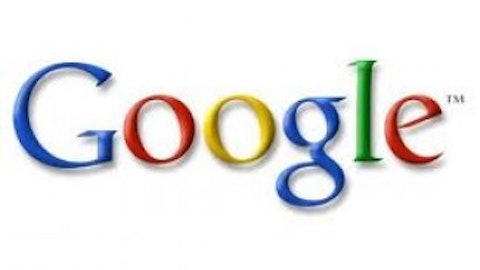How Apple is like your grandma
In his interview on CNBC, Einhorn compared Apple’s mentality to people who had lived through the Great Depression, including his own grandmother. Events like that cause lifelong trauma, and many who experienced it have a strong aversion to risk and tend to hoard cash. This was particularly true when Steve Jobs was alive.
When Jobs came back to Apple, the company was 90 days away from bankruptcy, and that greatly affected his attitude toward cash. He even ignored Warren Buffett’s direct advice to repurchase shares or institute a dividend. Jobs continued to sit on it and those two initiatives wouldn’t happen until Tim Cook became CEO.
To illustrate how cheap Apple is, Einhorn makes direct comparisons to Amazon.com, Inc. (NASDAQ:AMZN) . Both companies have similar P/S multiples (Apple at 2.6 and Amazon at 2). Einhorn even points out that Apple made over $20 billion in cash last quarter (likely referring to operating cash flow instead of net income), which is “more money than Amazon has made in its entire life.” He notes he does not have a short position in Amazon, but was using the e-tailer to illustrate how cheap Apple is.
What it means for investors
For investors, there are a couple reasons why preferred shares would be different than common shares. Common stock is more volatile and correlates more directly with a company’s earnings power, which can fluctuate over time. Preferred stock has a higher claim on company assets than common, and is assigned a par value per share that the dividend yield is based upon, making the shares similar to bonds in some ways.
The preferreds that Einhorn is proposing would be a positive sign for Apple as a proactive move to improve capital allocation. That could also lead to multiple expansion as its earnings multiples are extremely depressed right now.
There’s no question that all that money isn’t doing shareholders very much good right now. Braeburn Capital is the subsidiary that manages Apple’s cash, and the media likes to incorrectly categorize it as a “hedge fund” because it makes for a good headline. In actuality, it invests in “the most conservative investments known to man” with “the goal of capital preservation” — not the typical hedge fund goal. That’s all according to Tim Cook, and Apple’s SEC filings provide some detail. It’s mainly Treasuries, agency securities, and corporate bonds.
I would highly prefer Apple to distribute some of that cash to me as an investor so that I could invest it in something more in line with my own personal goals, which don’t include Treasuries.
Einhorn’s preferred idea may not fly, but he’s got a point: Apple needs to do something about its cash problem.
The article What David Einhorn’s Apple Idea Means for Investors originally appeared on Fool.com and is written by Evan Niu, CFA.
Fool contributor Evan Niu, CFA, owns shares of Apple. The Motley Fool recommends Amazon.com and Apple. The Motley Fool owns shares of Amazon.com, Apple, and Microsoft.
Copyright © 1995 – 2013 The Motley Fool, LLC. All rights reserved. The Motley Fool has a disclosure policy.




